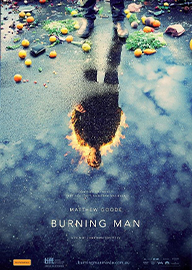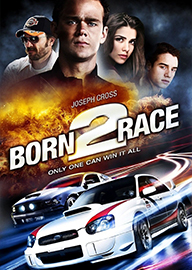Karnan
- 8
- Action
- 2021
- 2h 39m
- PG-13
a Tamil epic drama directed by Mari Selvaraj and starring Dhanush, Rajisha Vijayan, Lal, and Natarajan Subramaniam. Inspired by real events, it tells the story of a young man from a marginalized village who rises against systemic injustice and caste oppression. Blending myth, politics, and poetry, Karnan stands as one of Indian cinema’s most powerful portrayals of rebellion and human dignity, with stunning cinematography and a soul-stirring soundtrack by Santhosh Narayanan.













Comments
0Reviews
0Summery
1Please sign in to comment.
Please sign in to review.
Karnan (2021) opens not with dialogue but with silence — the haunting stillness of a barren Tamil village where a little girl lies motionless on a dusty road, waiting for a bus that will never stop. Around her, the wind hums with grief, and the earth itself seems to ache. That image — a single life denied dignity — becomes the seed from which the entire story of Karnan grows. Mari Selvaraj transforms that silence into a scream, that stillness into a revolution. His film is not just about one man or one village, but about generations of people denied their rightful humanity, their voices smothered by the machinery of caste and power. Through Dhanush’s eyes, through his ferocity and fragility, Karnan becomes both myth and mirror — an epic born out of injustice, yet filled with lyric beauty.
The film’s world, Podiyankulam, is a small village surrounded by oppression and indifference. Its people live without a bus stop, without representation, without acknowledgment — invisible to the system. The nearby village, Melur, holds all the privilege, its people wielding power like a weapon, their prejudice sanctioned by institutions. In this forgotten land, Karnan rises not as a hero, but as a reflection of every suppressed soul. Dhanush plays him with a quiet intensity that simmers beneath the skin, a man born of rage and empathy in equal measure. He is neither saint nor savior; he is the voice of those who can no longer bear to whisper.
Mari Selvaraj builds his film like a folk song. The cinematography by Theni Eswar is soaked in dust, sweat, and sunlight, turning the landscapes into living symbols. Goats, donkeys, and children wander through the frames as metaphors of innocence and endurance. The camera does not glamorize poverty; it worships resilience. Every image feels rooted in lived experience — cracked walls, bronze idols, the rhythmic pounding of women washing clothes by the river. It’s a world that breathes even before the plot begins to move. Karnan, like the mythic warrior of the Mahabharata, is born to fight against fate. But here, the epic is rewritten in the soil of rural Tamil Nadu. He is a young man caught between duty and rebellion, anger and love. His village reveres him, yet fears the fire he carries. His sister’s memory — the girl who died waiting for the bus — haunts him like a spirit. Her death is not tragedy alone; it’s the symbol of their collective suffocation. Every injustice that follows, every insult hurled by the privileged, sharpens his rage. But Mari Selvaraj doesn’t rush his transformation. He lets us live in Karnan’s world — dance in their festivals, laugh in their homes, feel the pulse of their drumming hearts.
The relationship between Karnan and Draupathi (Rajisha Vijayan) provides fleeting tenderness amidst turmoil. Their love scenes are soft, wordless, filled with glances instead of declarations. Yet even love here feels political — an act of defiance against a world that wants them to kneel. Lal’s character, Yeman, the old village elder, becomes both conscience and caution. He urges patience, warns that anger burns the bearer more than the enemy. But patience, as Karnan learns, is a privilege denied to the oppressed. As the narrative unfolds, Mari Selvaraj layers realism with allegory. The donkey tied and masked in the early scenes mirrors the villagers’ condition — silenced, restrained, mocked. The breaking of its bonds later becomes a cinematic act of emancipation. Myth and memory merge: the girl’s spirit appears in dreams, gods watch from the hilltops, and even the fish in the river seem to witness history. The tone oscillates between documentary-like authenticity and surreal poetry, creating a visual grammar unlike anything else in Tamil cinema.
When the system strikes, it strikes cruelly. The arrival of the police officer (played chillingly by Natarajan Subramaniam) marks the intrusion of institutional violence. His smile hides contempt, his discipline masks tyranny. He treats Podiyankulam’s villagers not as citizens but as subjects to be tamed. When Karnan’s defiance grows — when he begins to question, to act, to demand dignity — the state responds with its familiar weapon: terror. The brutality that follows is filmed not for shock, but for truth. The violence is physical, but it is also symbolic — a nation’s silence against its marginalized. Dhanush’s performance anchors this rage with surgical precision. His body language tells stories words cannot: the tension in his shoulders, the way his eyes harden before he acts, the way his grief becomes movement. His transformation from young man to myth feels inevitable yet painful. He doesn’t rise as a chosen one; he is created by oppression itself. When he finally rebels, breaking symbols of authority, it feels like the earth trembles — not because of one man’s might, but because of generations of repressed fury.
Santhosh Narayanan’s music pulses through the film like blood through veins. The percussion, the folk chants, the lamentations — every note is rooted in soil. Songs like “Kandaa Vara Sollunga” and “Thattaan Thattaan” become anthems of resistance. The score never romanticizes suffering; it amplifies resilience. Mari Selvaraj treats music as memory — a living record of a community’s struggle and hope. The film’s most powerful sequences are those that blend politics with poetry. When the bus stop becomes a symbol of rights, when a dance turns into protest, when a funeral becomes a festival of defiance — the screen transcends realism and becomes ritual. Mari Selvaraj films these moments with sacred reverence, as if documenting a myth in the making. The editing lingers on faces, weathered hands, children’s eyes, showing that revolution is not born from weapons, but from collective breath. The climax is both devastating and transcendent. When the system retaliates with unrestrained violence, burning homes and bodies, the screen becomes a canvas of fire and tears. But within that chaos, Karnan’s figure rises like legend — his body scarred, his heart unbroken. His final stand is not about victory, but about visibility. He fights so that history cannot erase them. The girl from the opening returns, her soul freed at last, the waiting over. The bus stop stands rebuilt — a monument not to convenience, but to remembrance.
Mari Selvaraj closes the film not with celebration, but with silence once more. The same road, the same sky, but now, a bus stops. The camera watches, still, reverent. The villagers step aboard — not as victims, but as witnesses. Justice remains incomplete, but dignity has been reclaimed. The cycle of myth has turned. Cinematically, Karnan is an experience in sensory storytelling. The handheld camera immerses the viewer in heat and dust; the color palette shifts from ochre to crimson as emotions intensify. The editing rhythm mimics heartbeat — fast in revolt, slow in mourning. Every frame feels sculpted from truth. Mari Selvaraj’s direction is both intimate and epic, blending political cinema with mythic structure. He turns oppression into poetry and resistance into rhythm. Thematically, the film speaks of caste, identity, memory, and rebellion, but beyond that, it speaks of what it means to be seen. Karnan is not merely about fighting power; it’s about demanding acknowledgment. It’s about naming the nameless, giving voice to the voiceless. In every strike, in every tear, lies the truth of countless untold stories.
In its final resonance, Karnan stands as a requiem and a revolution — a cinematic hymn to the silenced. Mari Selvaraj doesn’t offer easy redemption; he offers remembrance. His camera becomes conscience, his story scripture. Dhanush’s Karnan becomes an icon of defiance — not because he wins, but because he refuses to vanish. Karnan is a masterpiece of modern Tamil cinema — a film that marries realism and mythology, politics and poetry, anger and love. It reminds us that resistance is sacred, that memory is power, and that cinema, when honest, can shake the earth.